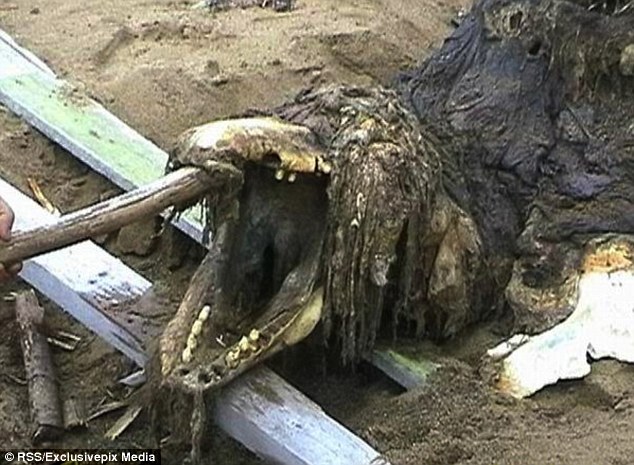And at first people were left baffled by the skeleton of the unknown animal, which was found by soldiers washed up on a Russian beach.
The discovery prompted the Russian special forces to remove the carcass to carry out an in-depth study on the 'unknown' skeleton.
But despite the theories that it could have been the remains of a pre-historic creature, it turned out the bones were in fact from a large beluga whale.
The remains were discovered on the shoreline in Sakhalin, an island in the most eastern part of Russia, which is near to Japan.
The images of the skeleton, which first emerged in 2006, were snapped by the soldiers before it was removed from the beach by Russian special forces.
But initial tests on the bones and teeth showed that it was not a fish, while the skeleton showed that it wasn't a crocodile or alligator.
It was also said to have measured in at around 20 feet long and had skin, with hair and fur.
But after several marine experts took one look at the pictures of the skeleton's skull, they quickly established that it was a beluga whale.
They also released the picture of a whale's skull to show the similarity of the two sets of bones.
Before being shown to be beluga whale, theories on what the remains could be had ranged for a whale to a plesiosaur, a pre-historic marine creature from the triassic period.
Last year the remains of a similar-looking creature with a four-metre long body and horns, washed up in Villaricos, Spain.
An unfortunate swimmer stumbled across the head before coming across the rest of the body.
It was unknown the exact origin of the creature and due to the extent of the deterioration it meant most of the remains had to be buried for safety reasons.
(dailymail.co.uk)
ANN.Az






Follow us !











